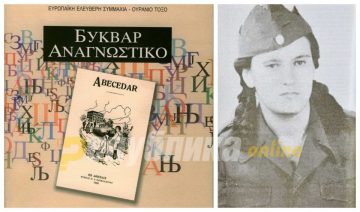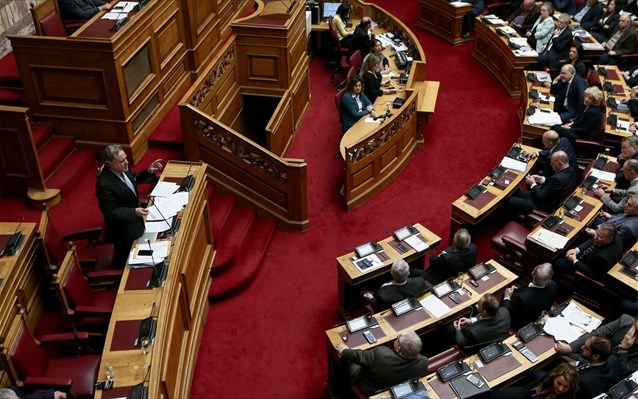After yesterday’s delay, the Greek Parliament is preparing to vote on the proposed ratification of the Macedonia name deal today early afternoon. The one comment from the debate on Thursday which caused concern in Macedonia was made by New Democracy leader Kyriakos Mitsotakis who, as the likely next Prime Minister of Greece, announced that he will still block Macedonia’s EU accession even if the country changes its name to North Macedonia.
Skopje’s EU integration process is not connected to the Prespa agreement. Greece can veto Skopje’s EU integration process at any moment and I refuse to give up this right our fatherland has, Mitsotakis said in the Parliament.
Macedonia already has an experience with Greece refusing to honor a deal under which Macedonia assumes a new name and Greece promises not to block its EU and NATO accession. The 1995 Interim Accord, which Greece signed but didn’t ratify, also has a strong no-veto clause if Macedonia agrees to use the temporary reference “former Yugoslav Republic of Macedonia”. Mitsotakis’ sister Dora Bakoyannis was Greek Foreign Minister in 2008 when she and Prime Minister Kostas Karamanlis used the veto power to block Macedonia’s membership into NATO.
Tsipras, on the other hand, asked the Communist party to support Macedonia’s entry into NATO, evoking the joint struggle between left wing Macedonians and Greeks against the Greek monarchist regime after World War Two. He mentioned Mirka Ginova, a communist guerrilla fighter who was captured and brutally killed by Greek forces in 1946. The Communist Party refused to vote for the so-called Prespa deal and unfurled a banner on the Acropolis criticizing it.
I don’t want to criticize the Communist Party of Greece on the basis of its history. But I will mention the Slavic Macedonian dictionary which KPG members distributed in the refugee camps in Tashkent to the children of the Slavic Macedonian fighters of the Democratic Army of Greece. I will mention the 70.000 refugees from the Civil War and how the Greek state denied them repatriation in 1983. I will mention the Slavic Macedonian Mirka Ginova – a Communist and first victim of the Civil War in Greece. I will allow you to think about this and to confront your own conscience, Tsipras said.

Tens of thousands of Macedonians were expelled from the part of the region of Macedonia held by Greece after the Second World War and the Civil War. The strongest guerrilla forces in the region were under the pro-communist DAG army, and they were considered enemies of the state. Greece allowed expelled ethnic Greek communists to return to the country after the military junta regime was toppled, but ethnic Macedonian refugees were not allowed to ask for their Greek citizenships back.

Meanwhile, nationalist leader Panos Kammenos, who supported the Tsipras Government during the name issue talks but left it as the deal was proposed to Parliament, asked that at least 110 members of Parliament who oppose the deal resign today. According to Kammenos, this would cause a parliamentary crisis and would spark new elections instead of the vote on ratification. Kammenos took a picture of Macedonian Prime Minister Zoran Zaev and billionaire financier and his supporter George Soros, who met in Davos on Thursday. According to Kammenos, the meeting is evidence that the name deal is part of a broader plan to weaken nation states in the Balkans. Zaev’s Government informed that the meeting in Davos was held to discuss further steps in promoting multiculturalism in Macedonia, where Zaev is pushing policies that erode her nation state status.






Comments are closed for this post.